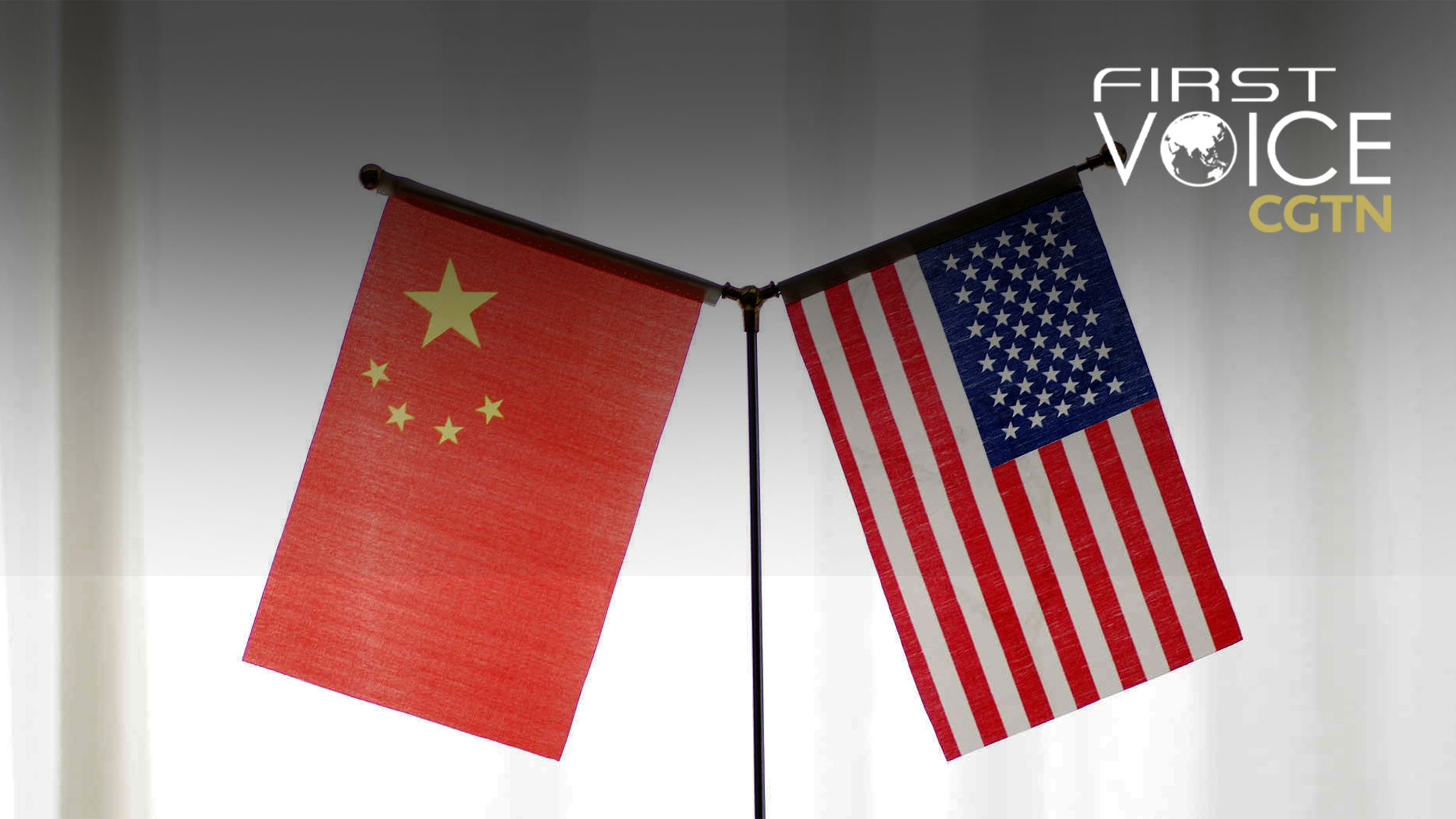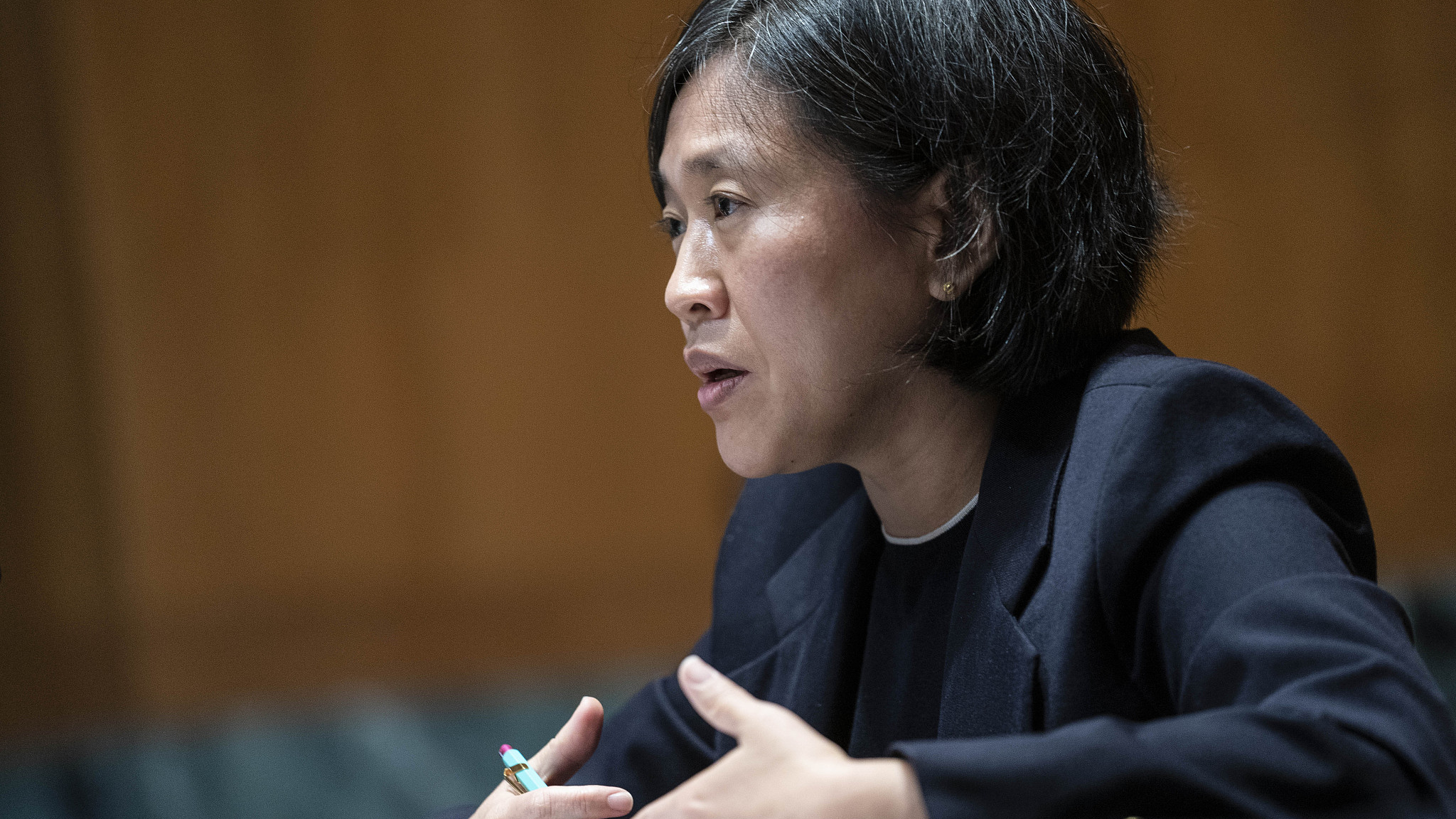
Editor's note: CGTN's First Voice provides instant commentary on breaking stories. The daily column clarifies emerging issues and better defines the news agenda, offering a Chinese perspective on the latest global events.
The latest remarks by U.S. Trade Representative Katherine Tai show the U.S. "America First" policy is alive and well.
Although the Biden administration has returned to using professional diplomats and measured language, President Joe Biden's North Star is still the question: What is best for American workers and interests?
There has been no real change from unilateralism to multilateralism — just an ill-starred effort by Washington to get other countries to join its elite clique, perhaps best represented by the Comprehensive and Progressive Agreement for Trans-Pacific Partnership that the U.S. proposed then abandoned.
A key element of Tai's proposals will be an effort to start lifting tariffs on Chinese goods that are harming the U.S. economy.
The Biden administration desires an "a la carte" approach to tariffs, picking and choosing which deals to favor and which deals to impede.
This is both illegal under WTO rules and entirely violates the spirit and purpose of free trade.
This approach is also wildly impractical since China is perfectly capable of responding to any U.S. moves and will surely not let any attempt at trade bullying go unanswered.
One can only hope that Tai's language about a "targeted tariff-exclusion process" is merely a fig leaf designed to help the U.S. escape from its disastrous trade war while still appearing to be "tough on China."
After all, the U.S. economy is being crippled by serious supply chain issues, which among other issues, are fueling inflation that threatens Biden's economic agenda.
Tai's proposals contained an unexpected but long-overdue nod to reality. An administration official admits that the Biden administration has recognized "China simply may not change and that we have to have a strategy that deals with China as it is, rather than as we might wish it to be."

U.S. Trade Representative Katherine Tai. /CFP
U.S. Trade Representative Katherine Tai. /CFP
The U.S. and China have different economic and political systems. The U.S. has long preached that big businesses should operate unimpeded by regulations and unsupervised by the state. It maintains that China's investments in high-tech, infrastructure and state-run enterprises are intrinsically unfair.
This U.S. position has been looking increasingly ridiculous, as its government lets down its own people again and again due to its inability to control big business and unwillingness to invest in its people.
The U.S. has taken the laissez-faire principle to such an extreme that it can't stop its own people from shooting each other or prevent local police officers from terrorizing ethnic minorities.
To take a current example, a single Senator who takes in massive amounts of corporate donations is able to hold up Biden's entire government agenda simply to protect those narrow business interests and ensure a lush post-Senate career as a lobbyist.
Time and time again, the U.S. is unable to fight off dangerous threats like climate change and the COVID-19 pandemic because big business puts profit ahead of the well-being of the people.
An administration official speaking Tai's proposals made the revealing admission that the U.S. needs a new strategy that begins with making domestic investments to increase America's competitiveness.
"This is what China and most other countries are doing now, and we cannot fall behind," the official said, admitting that China's investments have been mainstream by global standards the whole time, and the U.S. is the outlier, insisting everyone follow its business-first, people-last model.
The Biden administration continues to claim China pursues unfair and coercive practices that hurt American workers. But what are those policies exactly? American workers are being hurt by having the most expensive and inefficient healthcare in the world, the worst daycare and maternal policies of any wealthy nation, prohibitive higher education costs, and labor laws so regressive that many Americans are living paycheck to paycheck without a path to prosperity ahead of them.
None of this is China's fault. This is all due to the dominance of corporate interests that control U.S. politics.
China's success on the world stage threatens these corporate interests, not the American public. Biden's efforts to diminish, contain and slow the rise of China will do nothing to help everyday Americans.
When the Biden administration says it will use the full range of its tools to ensure the U.S.-China trade relationship works for American workers, it is using China as a scapegoat for purely domestic issues.
And a close look at the tools the Biden administration proposes to show the U.S. is not ready to give up rogue actions for multilateralism.
(If you want to contribute and have specific expertise, please contact us at opinions@cgtn.com.)

